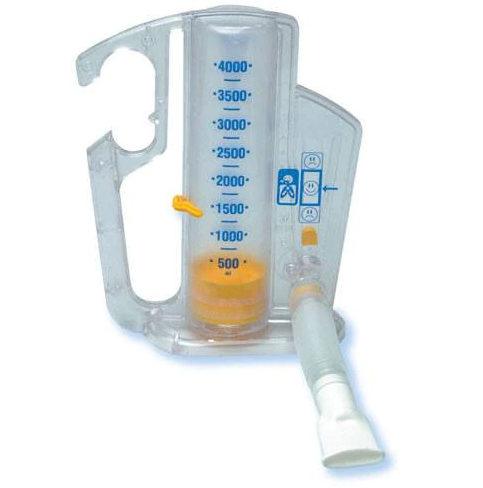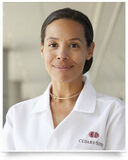Mitral Valve Awareness: The Recovery from Mitral Valve Surgery
Written By: Adam Pick, Patient Advocate, Author & Website Founder
Medical Expert: Dominic Emerson, MD, Cardiac Surgeon, Cedars-Sinai Medical Center
Page Last Updated: June 3, 2025
During the past 20 years, the patient experience following mitral valve surgery has greatly improved. Minimally-invasive techniques, new surgical protocols, and the use of nerve blocks have greatly enhanced recovery. Still, patients often wonder, “What should I expect during the recovery from mitral valve surgery?”
To answer this question during Mitral Valve Disease Awareness Week, we interviewed Dr. Dominic Emerson, Surgical Co-Director of the Cardiac Surgery Intensive Care Unit at Cedars-Sinai in Los Angeles, California.
Important Facts About Recovery from Mitral Valve Surgery
Here are several important learnings about the recovery from mitral valve surgery:
- Immediately following mitral valve surgery, the patient is taken to the intensive care unit (ICU). While in the ICU, the patient is actively monitored. Typically, the breathing tube is removed the first evening after surgery while the patient is still sedated.
- Patients typically stay in the ICU for one to two days.
- Patients are encouraged to become mobile while in the ICU. “The goal is to get the patient moving pretty quickly, out of bed walking, even the first post-operative day,” states Dr. Emerson.
- From the ICU, the patient is typically transferred to the “floor” which has regular hospital rooms.
- While on the floor, patients are encouraged to walk, use the incentive spirometer, eat, and do deep breathing exercises. “The general idea of the floor is to get you back to a little bit of normalcy while you’re still in the hospital,” states Dr. Emerson.

Incentive Spirometer
- Family and friend visitation is very important for patients, according to Dr. Emerson. “At Cedars-Sinai, we really encourage families and friends to see patients while they’re here,” states Dr. Emerson. “The family can come and visit patients in the ICU and the floor as well.”
- Safety is the number one concern for medical teams during the early recovery from mitral valve surgery.
- Patients are typically discharged when they are capable of moving by themselves, eating and drinking normally, going to the bathroom, and pain management is not controlled with IV medication.
- Each patient will recover at different rates. That said, the time in which patients may return to driving, going back to work, and exercising will largely depend on the patient’s own specific recovery and, in certain situations, the type of work the patient performs (e.g. does it involve heavy lifting).
- Dr. Emerson does restrict the patient from driving for the first month after mitral valve surgery. Dr. Emerson also requests that patients do not lift anything greater than 10 pounds for the first month.
- “My number one piece of advice,” states Dr. Emerson, “Try to be as active as you can in your own recovery. I really believe that doesn’t just start right after surgery. That starts before you even come in the operating room. I always tell people that the stronger you are coming in, the stronger you’re going to be going out. Get around as much as you can. Then, when you get home, stay active. Keep walking around. Try to get back to normalcy.”
Keep Learning About Mitral Valve Therapy
During Mitral Valve Disease Awareness Week, we’re sharing new information to educate you about the management and treatment of mitral valve disease including:
- Patient Webinar: Minimally-Invasive Heart Valve Surgery with Dr. Emerson
- Surgeon Q&A: Complex Mitral Valve Surgery
- What Is The Future of Mitral Valve Therapy?
- See the Mitral Valve Disease Awareness Week Educational Microsite
Keep on tickin!
Adam
P.S. For the deaf and hard of hearing, I have provided a written transcript of my interview with Dr. Emerson below:
Adam Pick: Hi, everybody, it’s Adam with heartvalvesurgery.com. This is a very special surgeon question and answer session all about the recovery from mitral valve surgery. I am thrilled to be joined by Dr. Dominic Emerson who’s a leading robotic mitral valve repair surgeon from Cedars-Sinai Medical Center in Los Angeles, California. Dr. Emerson, it is great to see you. Thanks so much for being with us today.
Dr. Emerson: Thanks so much for having me, Adam. It’s really great to talk with you about all of this and to connect with the entire community at heartvalvesurgery.com.
Adam Pick: Yeah, Dr. Emerson, we’re talking about the recovery from mitral valve surgery. One of the big questions that patients have is what happens immediately after the operation?
Dr. Emerson: Right after surgery, you’re going to go to an intensive care unit. That’s just a higher level of care that people get right after heart surgery. In most patients, a breathing tube will be in and they’re going to be watched very closely in the ICU. That period with the breathing tube in, they’re going to be asleep. They’re not going to be aware of that. The tube usually comes out about the first evening after surgery or if not, the first day after.
Then during those first 24 hours, we’re just watching, making sure the heart’s happy. The goal be to get the patient moving pretty quickly, out of bed walking even the first post operative day. Time in the ICU is usually about a day to two days in total. Again, it can vary a little bit. Then after that, it’s to what we call the floor, the ward, the regular hospital room you’re maybe used to. People are there for another four or so days.
Adam Pick: Dr. Emerson, let’s dive a little deeper as to what happens on the floor. If you’re a patient, what can you expect prior to discharge?
Dr. Emerson: On the regular hospital room, on the floor rooms, we’re continuing to monitor patients very closely as we do with anybody after heart surgery. The emphasis at this point is really on recovery and getting people back on their feet. That includes literally getting on your feet and walking around, but also doing normal things like making sure you’re eating okay, making sure your pain is well controlled which is really important after any operation. We will do things to encourage you to be active and deep breathing with a device called incentive spirometer, which just encourages you to take deep breaths. General idea of the floor is to get you back to a little bit of normalcy while you’re still in the hospital.
Adam Pick: Dr. Emerson, a big question that patients have is when can I see my friends and family when I’m recovering in the hospital?
Dr. Emerson: Family visitation, we think, is extremely important to the recovery in any patient. At Cedars, we really encourage patients’ families to see them while they’re here. The family can come and visit patients in the ICU and the floor as well. Visiting hours change a little bit depending on the care location. In the ICU, it’s more around the clock visitation because patients are being watched a lot closer at that point. Then on the floor, it’s more generally business hour kind of visitation.
Adam Pick: Dr. Emerson, I’m real curious and I’m sure patients are too, how do you know when it’s time for a patient to be discharged?
Dr. Emerson: Everything that occurs during heart surgery, from testing all the way through your discharge, the primary goal is safety. We define safety as somebody who’s able to get around pretty much on their own power, eating and drinking normally, even going to the bathroom. Pain is controlled but not with IV medication, pills and that sort of thing, and that they have a good place and a good support system that they’re going to go to.
Adam Pick: Dr. Emerson, another big question from patients is all about getting back to normal. Patients want to know, what’s your recommendations for how long it might take to do things like driving, exercising and getting back to work?
Dr. Emerson: It’s probably the most common question I get about recovery and what it’ll be like. In general, we still try to keep the focus on safety. Whatever is going to be safe is where we limit you. That means that we don’t want people doing any heavy lifting for about a month after they leave the hospital. That means anything greater than 10 pounds. We definitely do want people up, walking around, stairs are fine, all that. In fact, I think it really helps their recovery if they’re active.
In terms of driving, that is probably the biggest complaint I get, is that we stop people from driving for about a month after surgery. That, again, is just a safety issue. After the recovery, obviously you can go back to normal activities. Work is a little different for every individual. That’s because everybody’s job is different. If you’re somebody that sits behind a desk versus somebody who’s at a construction site, obviously they’re really different loads on your body, a lot of different stresses. We try to individualize their return-to-work plan and how that’s going to work, what are those limitations based on each individual patient.
Adam Pick: Dr. Emerson, you see a lot of mitral valve patients there at Cedars-Sinai. I’m curious to know, what is your number one piece of advice for a patient who is preparing to recover from mitral valve surgery?
Dr. Emerson: Adam, I think it’s the same advice I give anybody who’s undergoing heart surgery, which is try to be as active as you can in your own recovery. I really believe that that doesn’t just start right after surgery. That starts before you even come in the operating room. I always tell people the stronger you are coming in, the stronger you’re going to be going out, meaning be active prior to the OR. Get around as much as you can. Then, when you get home, stay active. Keep walking around. Try to get back to normalcy as quickly as you can with those same restrictions that we talked about. I think that really ensures the best chance at success.
Adam Pick: Dr. Emerson, that is fantastic advice. On behalf of all the patients at heartvalvesurgery.com, patients all over the world, thanks so much for taking time away from your very busy practice at Cedars-Sinai in Los Angeles and being with us today.
Dr. Emerson: Thank you, Adam. I really appreciate you taking the time to highlight these factors within mitral valve surgery. I think that it’s fantastic that I get to share with you and with all the patients at heartvalvesurgery.com. Again, thank you for doing this.












